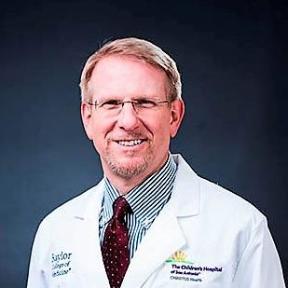Rich Wagner, MD ‘84
 When I started Wheaton I identified myself as pre-med, like almost ½ of the incoming freshman class. In fact, part of the reason I chose to attend Wheaton was because of its very high acceptance rate for graduates into medical schools. Social studies and history had always been my favorite and easiest school subjects. But, like all good pre-med students, I decided to major in biology or chemistry and subsequently declared biology as my major. By the middle of my sophomore year I was miserable. The only class I enjoyed was my World History course. I did not like General Biology at all, and Organic Chemistry was consuming my life. I was the first member of my family to attend college, so I really had no parental guidance on how to navigate college. My girlfriend at the time, and now wife of 31 years, one day asked me a startling question: “Why can’t you major in what you really enjoy and still be pre-med?” I said I did not think I could get into medical school as a history major. She replied, “Why not?” I looked into it, and realized that I just barely had enough time in my remaining undergraduate studies to complete a history major and still complete all of the necessary pre-med courses. I changed my major to history and never looked back. It was like I could breath again – I actually had a few courses that I loved and came easily for me. I was always OK at science, but I loved history and to this day still read history for recreation. Changing my major to history was one of the best decisions I ever made.
When I started Wheaton I identified myself as pre-med, like almost ½ of the incoming freshman class. In fact, part of the reason I chose to attend Wheaton was because of its very high acceptance rate for graduates into medical schools. Social studies and history had always been my favorite and easiest school subjects. But, like all good pre-med students, I decided to major in biology or chemistry and subsequently declared biology as my major. By the middle of my sophomore year I was miserable. The only class I enjoyed was my World History course. I did not like General Biology at all, and Organic Chemistry was consuming my life. I was the first member of my family to attend college, so I really had no parental guidance on how to navigate college. My girlfriend at the time, and now wife of 31 years, one day asked me a startling question: “Why can’t you major in what you really enjoy and still be pre-med?” I said I did not think I could get into medical school as a history major. She replied, “Why not?” I looked into it, and realized that I just barely had enough time in my remaining undergraduate studies to complete a history major and still complete all of the necessary pre-med courses. I changed my major to history and never looked back. It was like I could breath again – I actually had a few courses that I loved and came easily for me. I was always OK at science, but I loved history and to this day still read history for recreation. Changing my major to history was one of the best decisions I ever made.
I completed my undergraduate degree in 3 years and my wife (Debbi Wanner, ’84) and I were wedded graduation weekend. I had planned on a gap year before starting medical school, so I did not begin applying to medical school until after I graduated. My gap year turned into two years, but I eventually was accepted into medical school and matriculated at the University of Illinois in the fall of 1986. I received a Health Professions scholarship from the US Army for medical school, so upon graduation I entered active duty military service and reported to Tripler Army Medical Center in Honolulu to begin my residency in Obstetrics and Gynecology. I subsequently completed a fellowship in Maternal-Fetal Medicine and have practiced this specialty ever since. I rarely, if ever, use or reference the organic chemistry I took in college. I use my education in history every day. I interface with the world from a vantage informed by my historical education. During medical school, I was stunned at the ignorance of my very intelligent colleagues about world events, historical trends, art, literature, and church history. It made me value my history education even more.
As a Christian, I would say my knowledge of history and church history has been hugely beneficial in my life. It has helped me to be a church leader and enabled me to be a resource for others. It has made me a better Christian, for much of what the church is facing today has been faced before, and knowledge of those that have gone ahead of us is both illuminating and humbling.
So, what advice do I have for undergraduates? My advice is first and foremost to choose a major based on what you love and enjoy. You will be much happier during college and much more well-balanced for the rest of your life. Even if, like me, you are pursuing a professional or technical career, you can pretty much still major in what you love and also complete the requirements for your chosen profession.
I remain very grateful for my Wheaton education. As my children approached college, I strongly encouraged them to attend a Christian liberal arts school, and all of them did. I wanted them to have the same broad education that I was privileged to get. One of them even minored in history at Wheaton College!